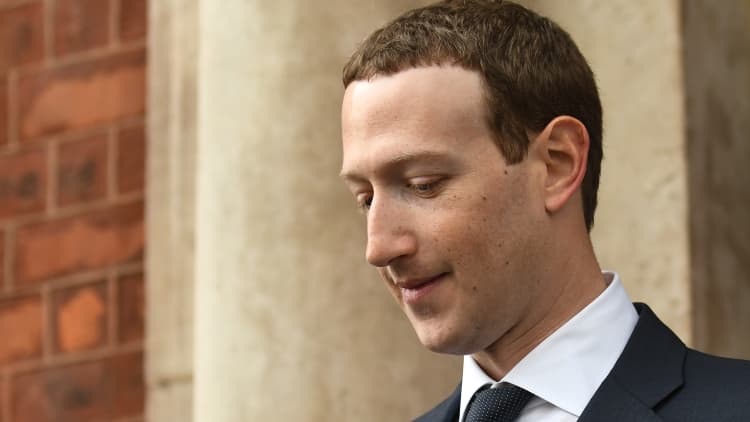Federal Trade Commissioners were divided over the extent to which Facebook CEO Mark Zuckerberg should be held directly accountable for the company's alleged violation of a 2012 settlement order about user data.
Democratic Commissioners Rebecca Kelly Slaughter and Rohit Chopra voted against the record-breaking $5 billion settlement in part because they believed Zuckerberg should have been named a defendant in the settlement. But the FTC's three Republican commissioners who voted for the settlement said the concessions they received were far greater than they could have hoped for through litigation.
"By far my biggest concern with the terms of the settlement is the release of liability, in particular the commitment that the order resolves 'any and all claims that Defendant, its officers, and directors, prior to June 12, 2019, violated the Commission's July 27, 2012 order,'" Slaughter wrote. "I am also uncomfortable with the inclusion of 'officers and directors' in the release from 'any [Section 5] claim known by the FTC.' I would have preferred to name Mr. Zuckerberg in the complaint and in the order. I disagree with the decision to omit him now, and I strenuously object to the choice to release him and all other executives from any potential liability for their roles to date.
"The proposed grant of broad immunity is highly unusual," Chopra wrote in his dissenting statement. "It is a departure from FTC precedent and established guidelines. Americans should ask why Mark Zuckerberg, Sheryl Sandberg, and other executives are being given this treatment, while leadership at small firms routinely face investigations, hearings, and charges. Law enforcement should enforce the law equally."
But the majority-voting Republican commissioners said in a statement that the argument that Zuckerberg should have been named as a defendant "misses the mark because it focuses on optics over substance."
"The provisions of this Order extinguish the ability of Mr. Zuckerberg to make privacy decisions unilaterally by also vesting responsibility and accountability for those decisions within business units, DCOs [designated compliance officers], and the privacy committee," they said.
The republican commissioners added that even without naming Zuckerberg as a defendant, the FTC's order holds the executive to account more than a court decision likely would.
"If the FTC had litigated this case, it is highly unlikely that any judge would have imposed a civil penalty even remotely close to this one," they wrote. The commissioners also said they would be unlikely to secure the structural changes imposed by the settlement order through litigation since they said they would not be able to allege and prove Facebook's board structure is illegal.
"Even assuming the FTC would prevail in litigation, a court would not give the Commission carte blanche to reorganize Facebook's governance structures and business operations as we deem fit," the commissioners in the majority wrote. "Instead, the court would impose the relief. Such relief would be limited to injunctive relief to remedy the specific proven violations and to prevent similar or related violations from occurring in the future."
The Republican commissioners also said, "It is unrealistic to think that court-imposed relief would remove Mr. Zuckerberg as CEO of Facebook or strip him of substantial voting rights."
FTC Chairman Joe Simons, who voted for the settlement, said at a press conference Wednesday morning that the commission was limited by the scope of its authority.
"Our authority in these types of cases is quite limited, which is why we have encouraged Congress to consider federal privacy legislation," Simons said. "But for now, the only real world choice here was to take a historic settlement that provides an immediate and important protection to American consumers, or wait for years to get far less relief. To me, not really much of a choice at all."
While Zuckerberg's voting control over Facebook's board of directors was not eliminated, the Republican commissioners said the order "significantly diminishes" his power overall. As part of the settlement, Zuckerberg must certify quarterly that Facebook is in compliance with the order's privacy program and certify annually that it is complying with the order overall. Zuckerberg could be held personally liable if he fails to comply with the order in good faith.
The settlement order also places several other overlapping checks on Zuckerberg's power. It installs an independent privacy committee on its board of directors that will be selected by an independent nominating committee. These members can only be removed a supermajority of voting shares, which prevents Zuckerberg from controlling the vote with his share power.
The order also gives more authority to an independent third-party assessor approved by the FTC who will conduct biennial assessments and report to the new privacy committee quarterly. Facebook must notify the assessor within 30 days of discovering that data of 500 or more users has been compromised, according to the FTC's announcement.
Watch: Facebook to pay $5 billion FTC fine, but Gene Munster says resolution is months away



